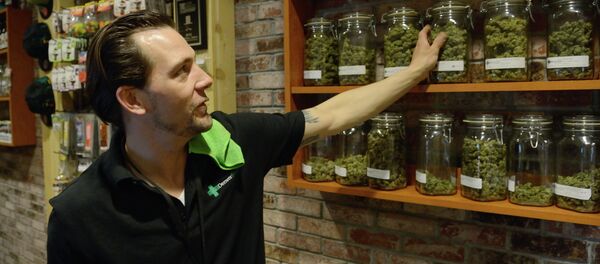Ever since the US Department of Justice announced late last year that tribes could grow and sell pot on their lands, Native American tribes have been coming forward in droves to say they want in on it.
In fact, of the 568 federally recognized tribes in the United States, more than 100 have told Kansas-based FoxBarry Farms and United Cannabis of Colorado that they’re interested and look at it as another way to make some money. Both are companies that are teaming up to build the country’s first marijuana facility on tribal land, and since they aren’t the only companies in the marijuana cultivation business, it’s likely that marijuana dispensaries could soon be as common as casinos on Native American land.
The first pot dispensary on tribal land is being built on the Pinoleville Pomo Nation ranch in Mendocino County in northern California. The indoor cultivation facility is expected to cost $10 million to build, and while Pinoleville is the first California tribe to get into the marijuana business, several others in the state and across the nation are already inking deals to get going on their pot growing. The Pinoleville facility is expected to have between 50-100 employees.
Because the facilities would be on tribal lands those areas are considered sovereign nations within the United States, they are exempt from state and local ordinances that either prohibit or limit the number and locations of marijuana plants that are grown.
The federal government said that even though it considers marijuana to be illegal, it is up to the tribes themselves to decide if that’s the same case on their own lands. The tribes have to follow the same guidelines already in place for states that allow marijuana cultivation, including not selling to minors or conducting marijuana-related business on federal land. However, they would likely have to do something illegal on a large scale, as President Obama himself has said the federal government is focused on more important issues and doesn’t consider prosecuting marijuana users a top priority.
While marijuana is illegal under federal law, 23 states have legalized cannabis for medicinal purposes, and four states, along with the city of Washington, D.C., have voted to allow it for recreational use.


